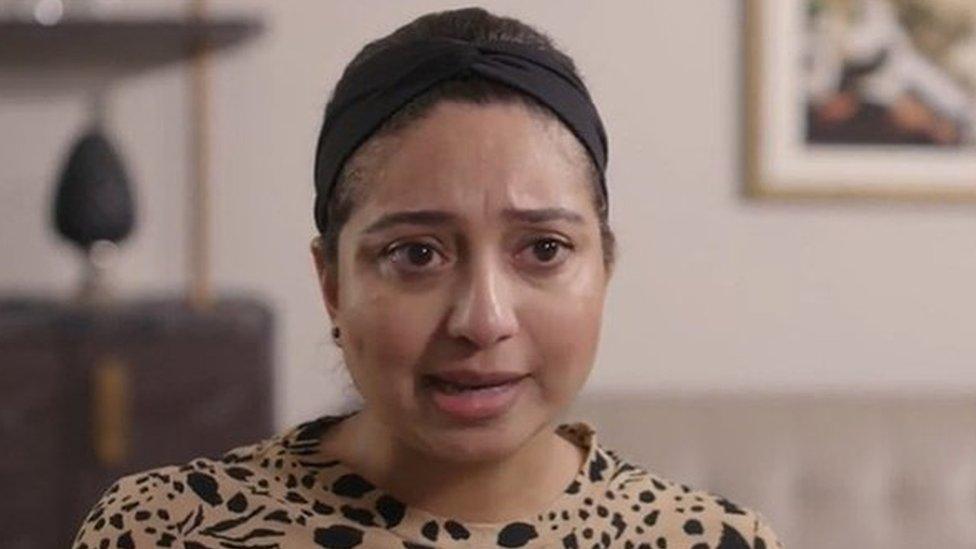Covid in pregnancy linked to birth-related complications
- Published
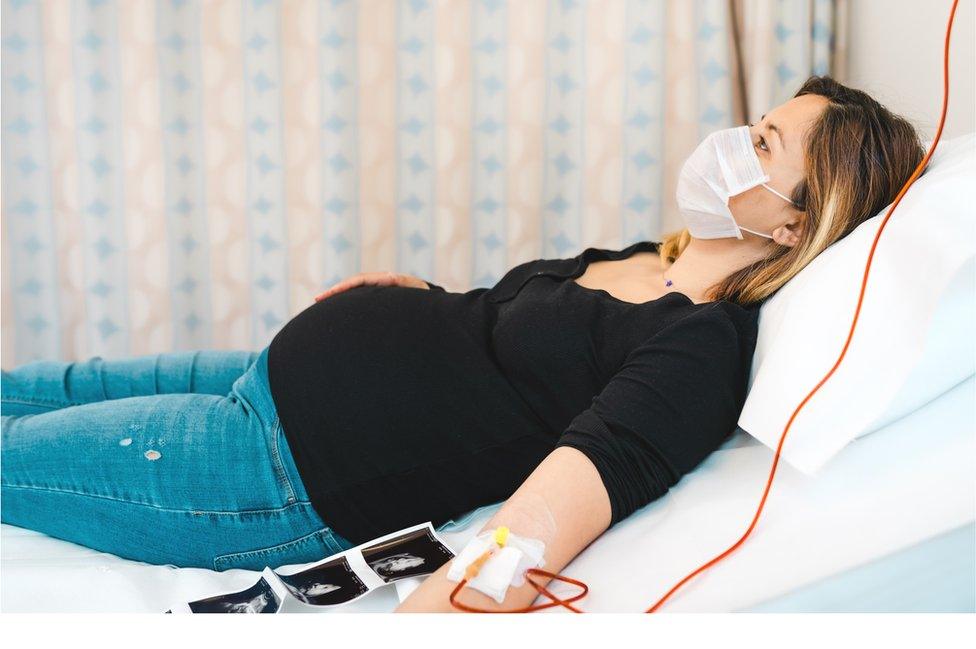
A new study has linked Covid-19 to complications during pregnancy.
Scottish researchers found that women who catch the virus near the end of pregnancy were more vulnerable to birth-related complications.
They are more likely to suffer them than women who catch Covid in early pregnancy or not at all.
The researchers say getting vaccinated is crucial to protect pregnant women and their babies from life-threatening complications.
The latest findings come from the Covid in Pregnancy Study (Cops), which carried out research across Scotland to learn about the incidence and outcomes of Covid-19 infection and vaccination in pregnancy.
It is one of the first national studies of pregnancy and Covid.
The research team included scientists from the Universities of Edinburgh, Glasgow, Aberdeen, Strathclyde, and St Andrews along with Public Health Scotland (PHS) and and Victoria University of Wellington in New Zealand.
They found that preterm births, stillbirths and newborn deaths were more common among women who had the virus 28 days, or less, before their delivery date.
The majority of complications occurred in unvaccinated women.
The results, which have been published in Nature Medicine, external, come after recent data showed 98% of pregnant women admitted to UK intensive care units with coronavirus symptoms were unvaccinated.
Researchers are now calling for measures to increase vaccine uptake in pregnant women.
The study analysed data relating to all pregnant women in Scotland. It included more than 87,000 women who were pregnant between the start of vaccination uptake in December 2020 and October 2021.
Vaccination uptake was lower in pregnant women during the study period, compared with women aged 18 to 44 in the general population.
Just 32% of women who gave birth in October 2021 were fully vaccinated, compared with 77% of the general female population aged 18 to 44.
All of the women whose babies died had not been vaccinated against Covid at the time of infection, though experts stressed that it is not possible to say if the virus contributed directly to the deaths or preterm births as they did not have access to detailed clinical records for individual women.

'This reassures me I did the right thing'
Nyree Mairs from Broxburn found out she was pregnant in January 2021. After suffering from seven miscarriages she was understandably worried about the effect of both the virus and the vaccine on her pregnancy.
She told the BBC: "I was quite confused at the start but when the government rolled out the vaccine for pregnant women, I sought more advice from my consultant and my midwife. I read reports which had been released at that point and findings from US studies, and that helped me make my decision.
She was anxious due to her past losses: "Having a baby in my 40s is a miracle and we didn't think it was going to happen," she said.
"I got good advice and I had to make an informed decision. I had also read sad stories about mums who had suffered losses and become really ill with Covid and their babies were really sick. That made my decision for me.
"This is so important and that's why I got the vaccination done."
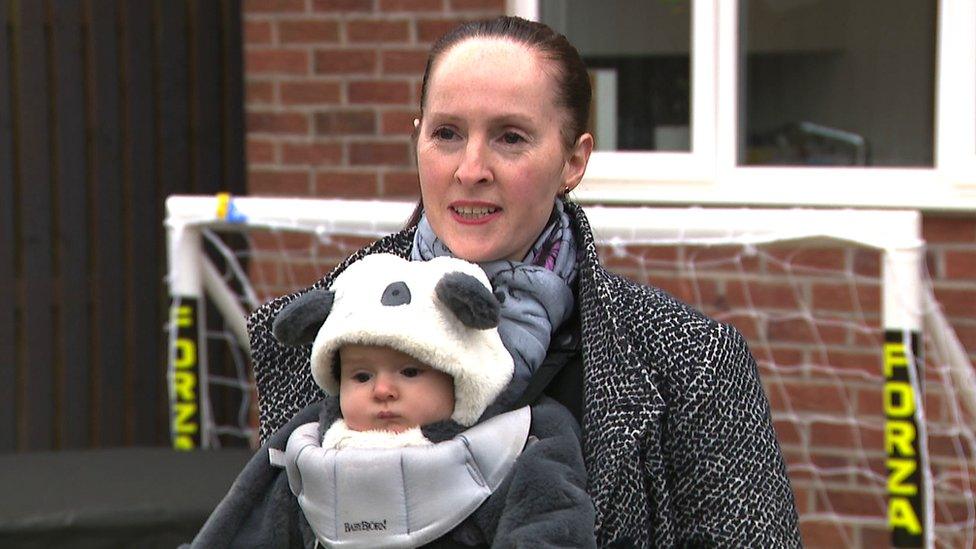
Nyree Mair believes she did the right thing by having the vaccine during her pregnancy
Hearing the results of the study reinforced that her decision was the right one. She said: "I have a son here who is absolutely perfect, nothing wrong with him and he is healthy.
"I feel really sad for people who didn't get it done and maybe had complications and I am just glad the information is out there for people.
"I'd advise people to get it. My son and I have been fine, and I have even had my booster now."

Cops co-lead Dr Sarah Stock, of the University of Edinburgh's Usher Institute, who is also a consultant obstetrician, said: "Our data adds to the evidence that vaccination in pregnancy does not increase the risk of complications in pregnancy, but Covid-19 does.
"Vaccination in pregnancy is crucial to protect women and babies from preventable, life-threatening complications of Covid."
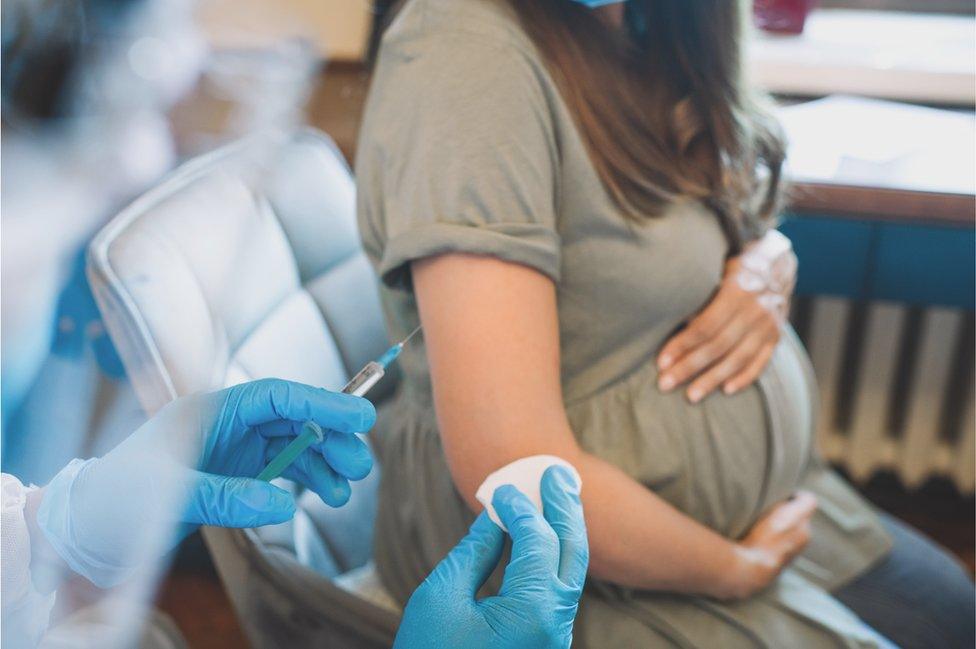
Pregnant women are being urged to take up vaccination to protect themselves and their babies
The team also looked at data on extended perinatal deaths, which is defined as the death of a baby in the womb after 24 weeks of pregnancy, or in the first 28 days after birth.
They found that the extended perinatal death rate among babies born within 28 days of their mother developing Covid was 23 per 1,000 births.
This was compared to the background perinatal mortality rate, the rate for all babies born in Scotland regardless of whether their mother had previously had Covid or been vaccinated, which was six per 1000 births during the pandemic.
Some 17% of babies born within 28 days of their mother developing Covid were delivered prematurely - more than three weeks before their due date - compared to a background preterm birth rate of 8%.
A total of 4,950 cases of Covid-19 have been confirmed during pregnancy since the start of the vaccination programme, with 77% of these cases in unvaccinated women.
Complication rates in women vaccinated during pregnancy were found to be very similar to background rates, which experts said gave further reassurance on the safety of vaccination during pregnancy.
Cops co-lead, Dr Rachael Wood, a consultant in public health medicine with Public Health Scotland, said: "It is clear that vaccination is the safest and most effective way for pregnant women to protect themselves and their babies from severe Covid-19 disease."

Prof Nicola Steedman described the study as "important"
The Scottish government's deputy chief medical officer Prof Nicola Steedman said: "This is an incredibly important piece of research, what it goes to show is Covid is that dangerous for pregnant women both for themselves and for their babies.
"There is really strong evidence now that Covid has much greater risks for pregnant women if they get it later in pregnancy and that vaccination is protective, so my message would be please if you have hesitated before and you are pregnant, please please get the vaccination for your own protection and for the protection of your baby."
Last week, the Scottish government deferred fertility treatment for all patients who are not fully vaccinated - unless they are waiting to become eligible for a booster.
It said the decision was based on uncertainty about how pregnant women were affected by the Omicron variant amid rising cases.
Related topics
- Published15 October 2021
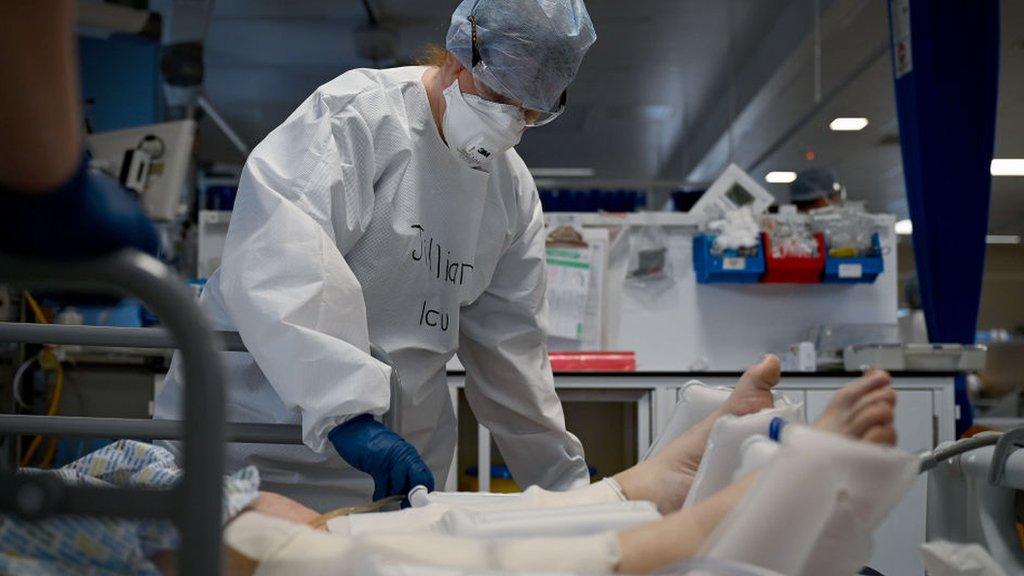
- Published21 May 2021
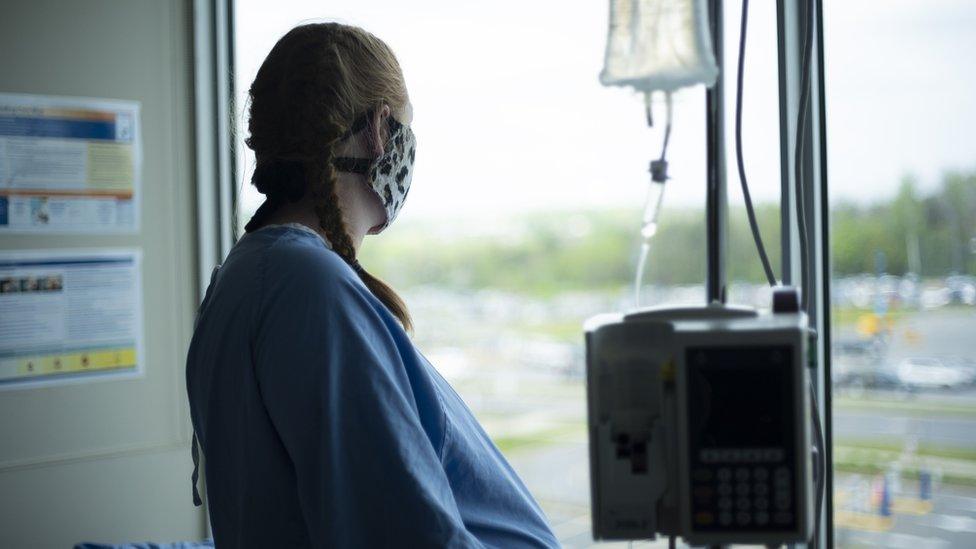
- Published4 December 2021
